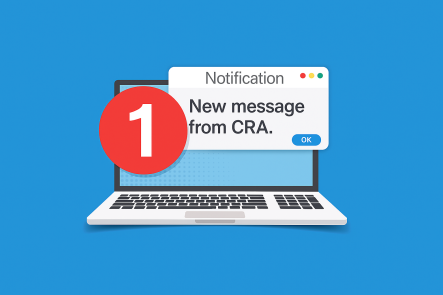UPDATE: Effective July 1, 2025, the CRA’s interest rate on overdue taxes will decrease to 7%. The lower rate will apply to all outstanding balances, but only for interest accrued on or after that date. Any interest charged for periods before July 1 will remain at the higher rate in effect at the time. Also on July 1, 2025, the interest rate on prescribed rate business loans is being reduced from 4% to 3%.
Fore more information on the prescribed rate changes see ‘CRA Prescribed Interest Rate Drops to 3% on July 1: What This Means for Tax Planning‘.
This article was originally published July, 2023.
Rising interest rates aren’t just impacting mortgage rates and other loans, they are also impacting the cost of late payments to Canada Revenue Agency (CRA). CRA reviews the interest rate they charge to late tax payments every quarter. For July 1 to September 30, 2023, the interest rate for taxes owing will be 9%; nearly double the 5% interest rate charged as recently as the second quarter of 2022.
Interest charges are a tool used by the CRA to ensure compliance with tax payment rules. In recent years, businesses and individuals often viewed the 5% rate as a fairly low cost line of credit. With the rise in CRA interest rates, the incentive to pay off taxes also rises and anyone owing tax should evaluate their options. If funds are not available to settle any outstanding taxes owed to CRA, alternative sources of capital should be considered. With personal lines of credit currently available at 8%, the cost of holding a balance with CRA has become the more expensive way to manage debt.
Interest Rising on Installment Payments
The rise in interest rates will also impact businesses, self-employed individuals, and anyone with rental or investment income who is required to make regular installment payments. Installment interest is compounded daily at the current prescribed rate of 9%. Businesses will also be subject to a penalty for late installment payments if the interest on the late installment payment exceeds $1,000.
In addition, interest and penalties charged on unpaid taxes are not a deductible business expense, so there is no reduction to the cost on an “after tax” basis.
Prescribed Rate for Business Loans
Interest charges for outstanding taxes are not the only change at CRA. The prescribed rate for businesses lending money to their owners has risen from 1% in the second quarter of 2022, to the current 5%. As a result, we can anticipate that CRA will be paying much closer attention to ensure these loans are repaid, with the appropriate interest paid to the lending company.
Takeaways
Any individual or corporation owing taxes to the CRA should evaluate their options – including other lower-cost sources of funds.
Another important reminder is to always file your taxes on time, even if you cannot pay the taxes owing. This will help you to avoid being hit with a the late-filing penalty of 5% of your 2022 balance owing, plus an additional 1% for each full month that you file after the due date, to a maximum of 12 months. Penalties can be even higher for subsequent offences.
Corporations making instalment payments to CRA should carefully evaluate their year-end projections. Taxes must be paid within two months of year end (three months in certain qualifying circumstances), even though the corporation tax return does not have to be filed until six months after year end. If the taxes are based on projections that prove to be too low, interest will be back-dated once the full year-end return is filed.
For full details on tax filing and instalment deadlines, check out our Tax Facts for Ontario Residents below.

2024-2025 Tax Facts for Ontario Residents
We’ve updated our Tax Facts for Ontario Residents document to include the new 2025 rates, as well as the 2024 rates. GGFL’s “go-to” Tax Facts sheet is a…
Learn more >






